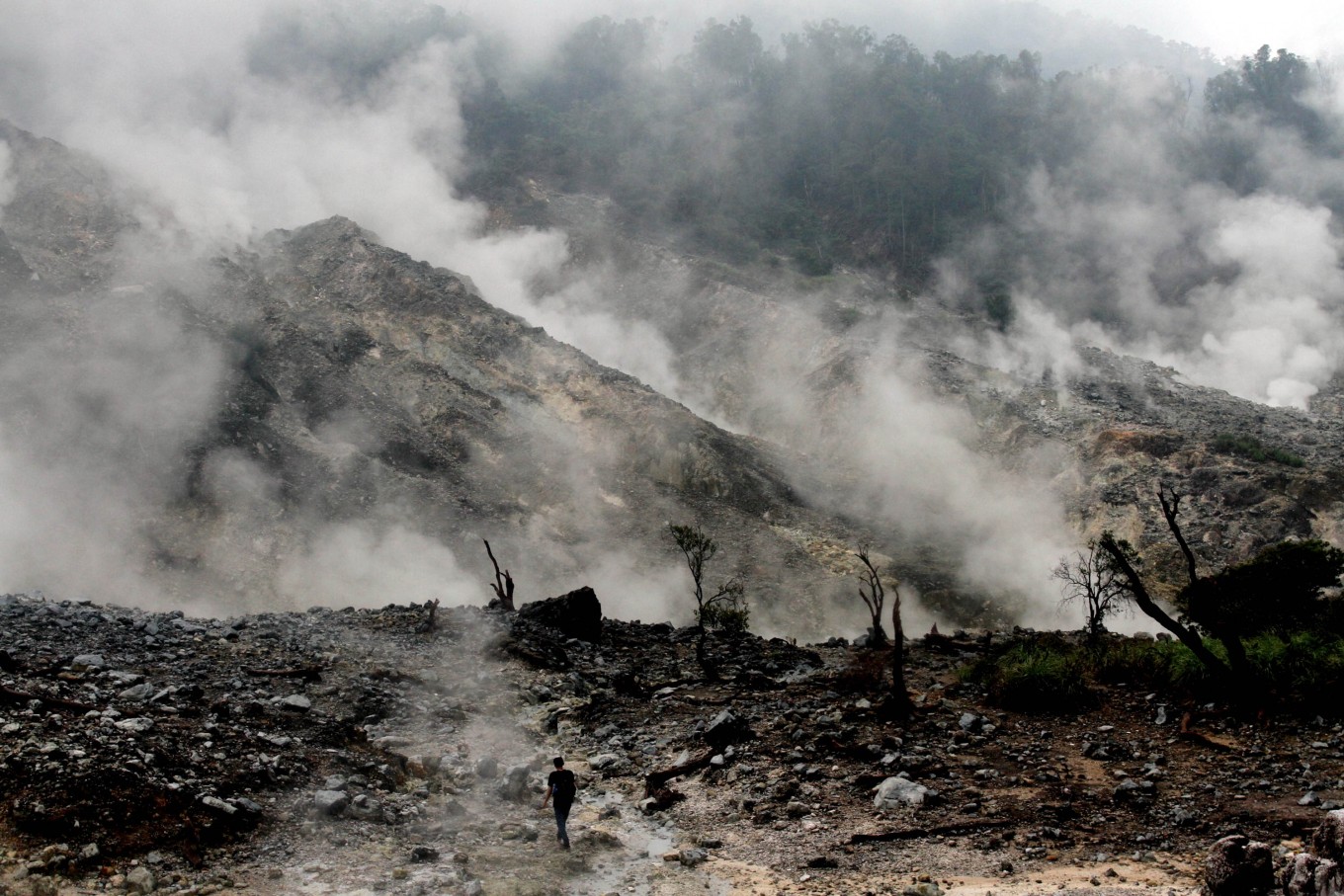Popular Reads
Top Results
Can't find what you're looking for?
View all search resultsPopular Reads
Top Results
Can't find what you're looking for?
View all search results‘Cornered’ indigenous groups invest billions in conservation: Study
Change text size
Gift Premium Articles
to Anyone
 It cited a case study on the Kasepuhan people who live in Mount Salak-Halimun forests in Lebak, Banten. The community has suffered from various disadvantages ever since the forest they currently live in was designated a national park in a 1992 decree issued by the Forestry Ministry. (ANTARAFOTO/Yulius Satria Wijaya)
It cited a case study on the Kasepuhan people who live in Mount Salak-Halimun forests in Lebak, Banten. The community has suffered from various disadvantages ever since the forest they currently live in was designated a national park in a 1992 decree issued by the Forestry Ministry. (ANTARAFOTO/Yulius Satria Wijaya)
M
illions of indigenous peoples in forested countries, including Indonesia, are continuing to suffer from harsh conservation policies despite having played a crucial role in protecting the environment, a new study has revealed.
The study, titled “Cornered by Protected Areas” and coauthored by UN Special Rapporteur on the rights of indigenous peoples Victoria Tauli-Corpuz and the Rights and Resources Initiative (RRI), claims to have quantified the financial contributions made by indigenous peoples in conservation.
It found that local communities around the world invest up to US$4.57 billion per year in conservation, including up to $1.71 billion per year in forest conservation. That figure, it says, is about 23 percent of the amount spent on land and forest conservation by governments, donors, foundations and NGOs.
“The new estimates are based on case studies of labor and cash invested by communities from their own resources in conservation actions such as forest management, fire protection and management, restoration and rehabilitation […] patrolling/policing, and mapping and cataloguing biodiversity,” it says.
The study, however, also highlights the plight of the indigenous people or local communities that have not only been sidelined in conservation efforts, but also been victims of governmental policies on environmental protection.
“Instead of partnering with the people who live in and depend on forests, conservation initiatives continue to drive communities from their ancestral lands, part of a larger trend of criminalization worldwide,” Tauli-Corpuz said in a statement. “In some cases, they are declared squatters in their own territories. In my capacity as special rapporteur, I have seen a disturbing uptick of harassment, criminalization and even extrajudicial killings targeting communities.”
The study looked into the impact protected areas have on indigenous peoples and local communities in 28 countries, including Indonesia, where many people live in forested areas that have been designated as national parks.
It cited a case study on the Kasepuhan people who live in Mount Salak-Halimun forests in Lebak, Banten. The community has suffered from various disadvantages ever since the forest they currently live in was designated a national park in a 1992 decree issued by the Forestry Ministry.
Before the forest was turned into a national park, the Kasepuhan people used it to gather food. But they now face intimidation from the national park's office rangers.
In 2013, rangers chased down a woman who was herding her buffalo at the national park and destroyed her livestock shelter, according to the study.
In 2014, a resident from Kasepuhan Karang reportedly had to pay Rp 1 million (US$ 69.55) in fines to rangers for taking charcoal from the national park. The rangers also seized 130 bags of charcoal worth Rp 260,000 from the said resident. The charcoal in question, the report says, was actually produced from leftover timber from an illegal logging operation carried out by GHSNP rangers.
The Kasepuhan people also reportedly found difficulties in meeting their daily subsistence needs after the government prohibited them from cutting down trees, including those that they planted themselves as stipulated in the 1999 law on forestry.
Rukka Sombolinggi, the secretary-general of the Indigenous People’s Alliance of the Archipelago (AMAN), said that, in Indonesia, indigenous communities often struggled with criminalization and persecution when their living space overlapped with protected areas or private concessions.
“The designation of Kasepuhan community land as a national park, for instance, has led to harassment and intimidation by the police, who have cracked down on communities for simply living in their homes and gathering their traditional food,” Rukka said in a written statement received by The Jakarta Post on Wednesday.
The authorities, Rukka added, intimidated and harassed the indigenous people yet were unable to put a stop to illegal logging by outsiders.
According to the report, the prohibition on forest use disrupted the Kasepuhan community’s daily routine as they struggled to fulfill their basic needs without access to forest resources.
Dean Affandi, a researcher from World Resources Institute, explained that indigenous communities had depended on the forest for so long that it was rooted in their culture.
“Since it had been done for generations and generations, of course it's not easy for them to just switch from gathering food in the woods to buying stuff from the market.” (dya)









